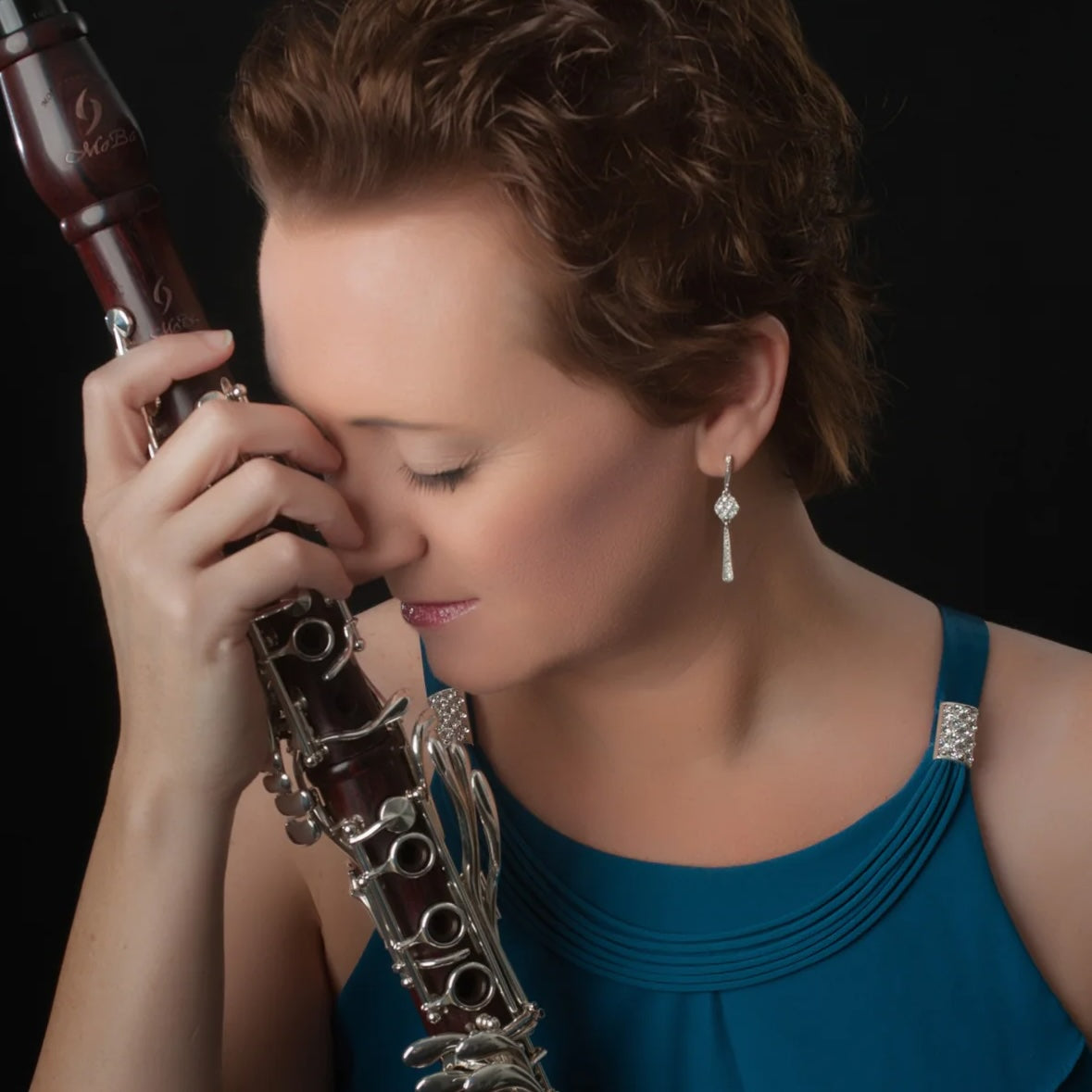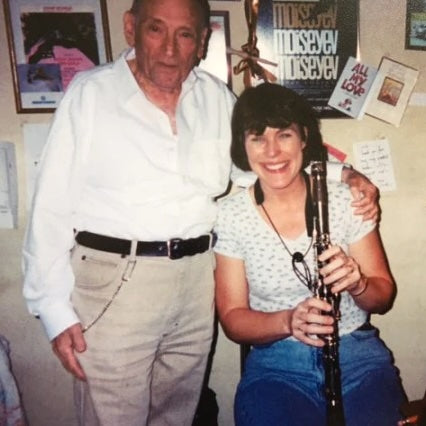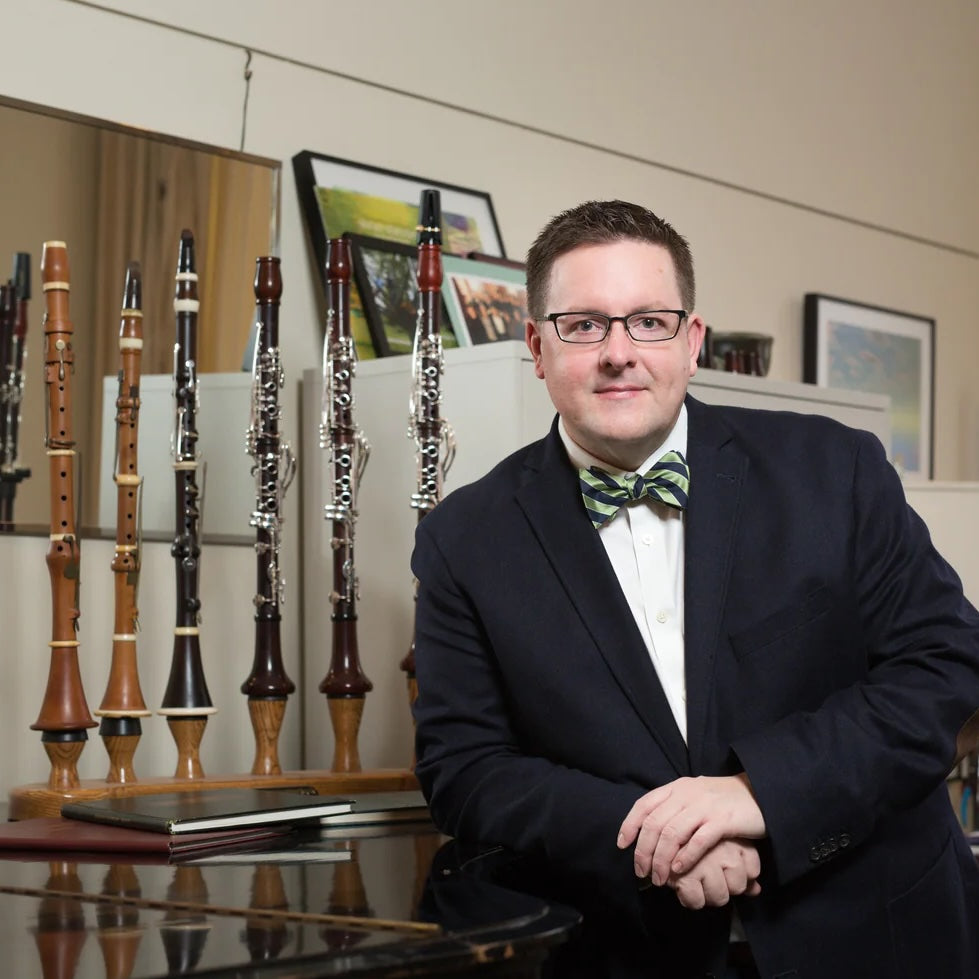Q&A WITH MARY ALICE DRUHAN
What made you want to organize and host a clarinet event like the Texas Clarinet Colloquium?
When I first moved to the northeast Texas area, I was the only full-time woodwind professor at my school, and I had only five clarinet students. Having just come from The US Army Band “Pershing’s Own” and after years of graduate school, I felt very isolated and lonely. I was so busy finishing my dissertation, creating a curriculum for the woodwinds, juggling parenting, and recruiting students that I really didn’t have time to leave campus to visit other clarinetists, so I just decided to invite people to visit. My first guest was Dr. David Etheridge, because I was so grateful to him for the events I had attended at the Oklahoma University Clarinet Symposium. That year we welcomed seventeen guests.
Any advice on getting approval and support for your events?
I’ve always been terrible at asking permission. My first boss at the university told me that he trusted me to know how to do my job—after all, that’s why he hired me. If I thought something needed to be done, he said I should just do it.
I got very accustomed to this, and I really enjoy being my own boss. In reality, I have created some friction with other people along the way who like to be more involved and don’t understand my proactive approach to getting things done. Support generally comes easy, though. I find that if you love what you do, people will respect that and be more supportive.
Venues: What do you look for in hosting an event?
In an ideal situation, having everything in-house and on campus can solve most of the issues of an event; it’s just not always possible. Location is critical: proximity to transportation hubs, lodging and food are paramount. Other considerations include the proximity of lectures to concerts and keeping the vendors and exhibitors close enough and highly visible.
The 2015 Clarinet Colloquium was the first event that required me to use outside venue contracts. My best advice: if your instinct tells you that the person in charge of a venue isn’t organized, it’s more important to be repetitive and relentless than it is to protect their ego. The flip side is destruction to the plan and a very stressful day. Trust your gut.
Vendor support: What should your colleagues know about working with vendors and exhibitors?
Vendors . . . the “big bad wolves”! In reality, they’re just fuzzy puppies with sharp teeth who want to play all day and who like to puppy-fight over square footage.
Ultimately, vendors want their products in the hands of the attendees. They want to be visible and they want impartiality. I’ve tried to always provide this, listening to advice and requests (and believe me, representatives will request special treatment). Know your limits and back up all communications by email. This will come in handy during misunderstandings and disagreements over promises made and privileges assumed.
Artists: What kind of artist do you normally engage for events?
Each year I search for a variety of artists and then contact industry companies to request support for an artist. I want to see some well loved, charismatic, energetic teachers like Larry Guy and college professors like Richard MacDowell who have a great reputation for excellence and good rapport with students.
It’s always great to have a strong orchestral artist like Ricardo Morales and someone who is active as a soloist, such as Michael Lowenstern. Lastly, I always work hard to include private teachers from the local area, inviting them to teach as volunteers (gifting free admission for some of their students), and other university teachers who need to be active in Research Scholarship and Creative Activity (RSCA) for their evaluations.
Scheduling: What is the most difficult challenge in scheduling, and how do you overcome it?
Too busy or too light? There really is no balance. Exhibitors want tons of free time for people to browse. Attendees want variety and “bang for the buck.” It’s a real struggle, as the schedule has to juggle artist availability and travel, too. I have some tricks for this, but I adjust every time I host.
Generally, I try to put more space between classes that are geared to certain ages. Middle school classes are short with long breaks for the students’ developing attention spans, which works well since they are generally new to exhibits and need that time. It’s more difficult with older crowds, because they are interested in more topics and want to keep a busier schedule.
How do you manage all the moving parts, including colleagues and student volunteers?
One of my favourite mentors (Frank Wickes) used to call this “with-it-ness.” Every person is different, and it’s important to know your strengths and weaknesses.
Organization has always been a strength of mine, perhaps too much so. I will say that I have had to learn flexibility and reaction/correction techniques. This continues to be one of my greatest challenges.
That same mentor, Frank, taught me that great leaders learn to delegate, but that the best leaders know whom to delegate to. The best of the best also learn how to inspire their delegates to work as efficiently as they would themselves. Dang, I try.
My students and former students are absolutely critical to the success of my events, and they have helped me more than anyone knows. Jennifer Daffinee is not my right hand . . . she is all of my hands and a couple of my feet. I love her dearly for being such an amazing collaborator. What people don’t know is that there are also too many wonderful “others” to name.
Egos: How do you manage them leading into and in the middle of an event?
I’ve only had a few problems in ten years of hosting nearly two hundred artists and many exhibitors. Ultimately I just have confidence in what I’m doing and I stay focused.
It can be really frustrating, because I work so hard leading up to an event, and I’m usually exhausted by the time guests show up.
I also have rejected any notion or suggestion of inviting back any artist to present if I recognize conduct that I feel is inappropriate or disrespectful toward my students or guests.
What is the most gratifying part of organizing events and what keeps you coming back for more every year?
I love the community. We are supportive of one another, we all want to be engaged, and we all want to enjoy music and each other. I have made wonderful friendships and learned so many valuable things. By allowing this kind of event to happen around my students, I provide for them an opportunity for growth and enthusiasm. What could be better, honestly?
Lessons learned: If you had to start over again, what would you do differently?
Got a new boss? Start over! Don’t just follow the developed pattern, but sit down and go through the steps with each new administrator. Too often, I take charge and go to work, forgetting there’s a dugout, a huddle and a batting plate before I’m supposed to hit a home run. Also, try to always say “thank you.” It’s an honour to have people involved and to be involved.
Mary Alice Druhan is Professor of Clarinet at Texas A&M University–Commerce, and performs with the Dallas Wind Symphony, among other groups. Previously, she performed as the solo E♭ clarinetist with the US Army Band “Pershing’s Own,” as well as a B♭ section member of the Ceremonial Unit, and as a featured soloist with the concert band. A founder and director of the Texas Clarinet Colloquium. Mary Alice Druhan is a Backun Artist and performs on MoBa clarinets and accessories.



